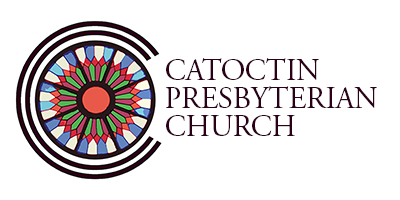Date: June 30, 2019
Bible Text: Galatians 5:1, 13-26, Luke 9:51-62 | Rev. David A. Douthett
The lectionary passages for this week are about the choices we are called to make as disciples. Paul's letter to the Galatians includes this familiar passage in chapter 5 comparing the works of the flesh and fruits of the Spirit, as Paul encourages the church to turn away from the former and pursue the latter. Meanwhile, in Luke 9, Jesus tries to make some potential followers understand just what it is they are getting into with him. So while the sermons recently have been pretty outward facing (how can we as the church engage the world), this week we'll be reflecting more on the implications of God's call on our lives personally. If that doesn't sound attractive, that might already tell you something.
Notes from the Preacher
Good news! We got the whole service recorded this week! (At least, I hope you'll agree that's good news.)
I was struck in reading the Luke 9 passage that Jesus' responses to the three potential disciples were all pretty cryptic. You really have to stop and work through what he is saying, as he isn't giving a straight answer to any of them. You might expect that when someone says, "I'll follow you anywhere," he might say, "Great! Let's go!" Or if someone says, "Yes, but first, let me do this one thing," he might say either, "Yes, fine," or "No, come on." But in all three cases, he gives a metaphor or aphorism, so you just kind of cock your head and say, "Huh?" In the sermon I compared this to Dan-Ratherisms: folksy, descriptive interjections used by news anchor Dan Rather to describe some of the action on various election night reports. You can see some of these at this website.
The discipleship that Jesus describes, both to these potential followers and to his active disciples, James and John, is one that leaves the values of our broken world behind. It is a way of life that forsakes our usual sense of security of place, of family, of righteous indignation, of vengeance, and more. Indeed, to be Jesus' disciple is like emigrating from your homeland to seek asylum in the Kingdom of God. Claiming our identity in Christ is as risky as coming out.
So why take such drastic measures? Because of the promises of what God has in store for us in the new life in Christ. The contrast is on display in the Galatians 5 passage. The works of the flesh offer a joyless list of self-indulgence and self-interest that is ultimately self-defeating, but God offers us life in the Spirit, which produces life-giving renewal of self and community. While Paul may not have intended for his list of works of the flesh to match directly with the fruit of the Spirit, I've hammered them together to compare and contrast in such a way that we can see in the works a negative reflection of the fruit. Here's my take on it. Your results may vary.
| Fruits of the Spirit | Works of the Flesh |
| love | fornication, impurity, licentiousness, |
| joy | X |
| peace | enmities, strife, |
| patience | quarrels, |
| kindness | anger, factions, |
| generosity | jealousy, envy, |
| faithfulness | idolatry, sorcery, |
| gentleness | dissensions, |
| self-control | drunkenness, carousing |
You see that the works of the flesh don't even have an analog to joy.
So the invitation to those of us who follow Jesus is to diligently reflect on the ways we try to maintain our citizenship in the brokenness of the world when we should be living into the freedom of serving Christ alone. I invite you to use the chart above as a tool for your prayerful reflection to find where you need Christ to set you free and to invite the Spirit to grow a new crop in you. It's a hard journey, but the new life in Christ is totally worth the price of admission.
Topics: Discipleship,Fruit of the Spirit,God's Call,God's Promises

Leave A Comment